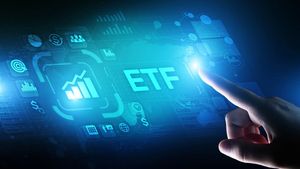MALVERN, Pa., April 10, 2024 (GLOBE NEWSWIRE) -- Neuronetics, Inc. (NASDAQ: STIM), a medical technology company focused on designing, developing, and marketing products that improve the quality of life for patients who suffer from neurohealth disorders, announced the publication of significant clinical findings in Brain Stimulation: Basic, Translational, and Clinical Research in Neuromodulation, the premier journal in the field of neuromodulation. This analysis concludes that while early symptom improvement in major depressive disorder (MDD) is strongly predictive of response at the completion of transcranial magnetic stimulation (TMS) treatment (36 sessions), lack of early improvement does not predict final treatment outcome.
"These findings provide hope for practitioners and patients alike that a lack of improvement early in a TMS treatment regimen does not predict final non-response status, reinforcing the importance of completing the full prescribed treatment course for maximum results," said Cory Anderson, Senior Vice President of Research & Development and Clinical, Neuronetics. "Insurers, practitioners, and patients can all take note that patients who are slow to respond to the treatment process still have a significant likelihood of improving by the end of their full course. This paper builds upon prior publications utilizing data from our proprietary TrakStar database, which showed a correlation between treatment sessions completed and positive clinical outcomes. Treating to completion of 36 NeuroStar sessions offers patients the greatest potential to benefit from NeuroStar TMS treatment."
The findings are based on research from the NeuroStar Outcomes Registry, the world's largest registry of depression outcomes. In a sample of 7,215 MDD patients treated with NeuroStar TMS Therapy, two rigorous analytical methods were used to evaluate the accuracy of early treatment progress (after 10, 20, and 30 sessions) in predicting final patient outcomes after 36 sessions. Researchers found that slow improvement early in treatment does not accurately predict final non-responder status. In fact, at 10 sessions, predicting a non-responder was only 51% accurate and at 20 sessions, it was only 63% accurate when analyzing for maximum prediction accuracy as described in the paper.
Ultimately, a substantial proportion of patients with low levels of improvement early in treatment experienced a meaningful reduction in their symptoms by the end of the treatment course, emphasizing the importance of completing a full treatment regimen. Conversely, the analysis confirmed that early improvement in MDD symptoms was strongly predictive of a successful clinical outcome.
"The data demonstrated that stopping TMS treatment even as late as 30 sessions due to insufficient progress would have resulted in premature discontinuation in 31% of such patients. This group of slowly responding patients would have been denied a valuable therapy that would have benefited them by finishing the treatment course," said Dr. Harold Sackeim, Professor in Psychiatry and Radiology at Columbia University, and lead study investigator. "These findings have broad implications for the TMS community. They demonstrate that lack of early improvement does not accurately predict non-response at 36 sessions, resolving prior inconsistencies in both scientific literature and industry practice."
In October 2023, additional clinical findings published in Brain Stimulation revealed a strong association between the number of treatment sessions completed and improved depression outcomes. Data from the NeuroStar Outcomes Registry come from the Company's proprietary TrakStar patient data management system, which collects real-world treatment information using NeuroStar Advanced Therapy, a non-invasive and FDA-cleared treatment for depression and other mental health conditions. Both publications and findings are evidence of NeuroStar's commitment to providing actionable data for clinicians prescribing TMS therapy to treat MDD effectively.
For more information about NeuroStar TMS Therapy, please visit NeuroStar.com.
About Neuronetics
Neuronetics, Inc. believes that mental health is as important as physical health. As a global leader in neuroscience, Neuronetics is redefining patient and physician expectations with its NeuroStar Advanced Therapy for Mental Health. NeuroStar is a non-drug, noninvasive treatment that can improve the quality of life for people suffering from neurohealth conditions when traditional medication hasn’t helped. In the United States, NeuroStar is FDA-cleared for adults with major depressive disorder (MDD), as an adjunct for adults with obsessive-compulsive disorder (OCD), and to decrease anxiety symptoms in adult patients with MDD that may exhibit comorbid anxiety symptoms (anxious depression). NeuroStar is also indicated as a first-line, adjunct for MDD in adolescents 15 and older. NeuroStar Advanced Therapy is the leading transcranial magnetic stimulation (TMS) treatment for MDD in adults with over 6.1 million treatments delivered. NeuroStar is backed by the largest clinical data set of any TMS system for depression, including the world’s largest depression Outcomes Registry. Neuronetics is committed to transforming lives by offering an exceptional treatment that produces extraordinary results. For safety and prescribing information, www.neurostar.com.
Media Contact:
EvolveMKD
646.517.4220
NeuroStar@evolvemkd.com







